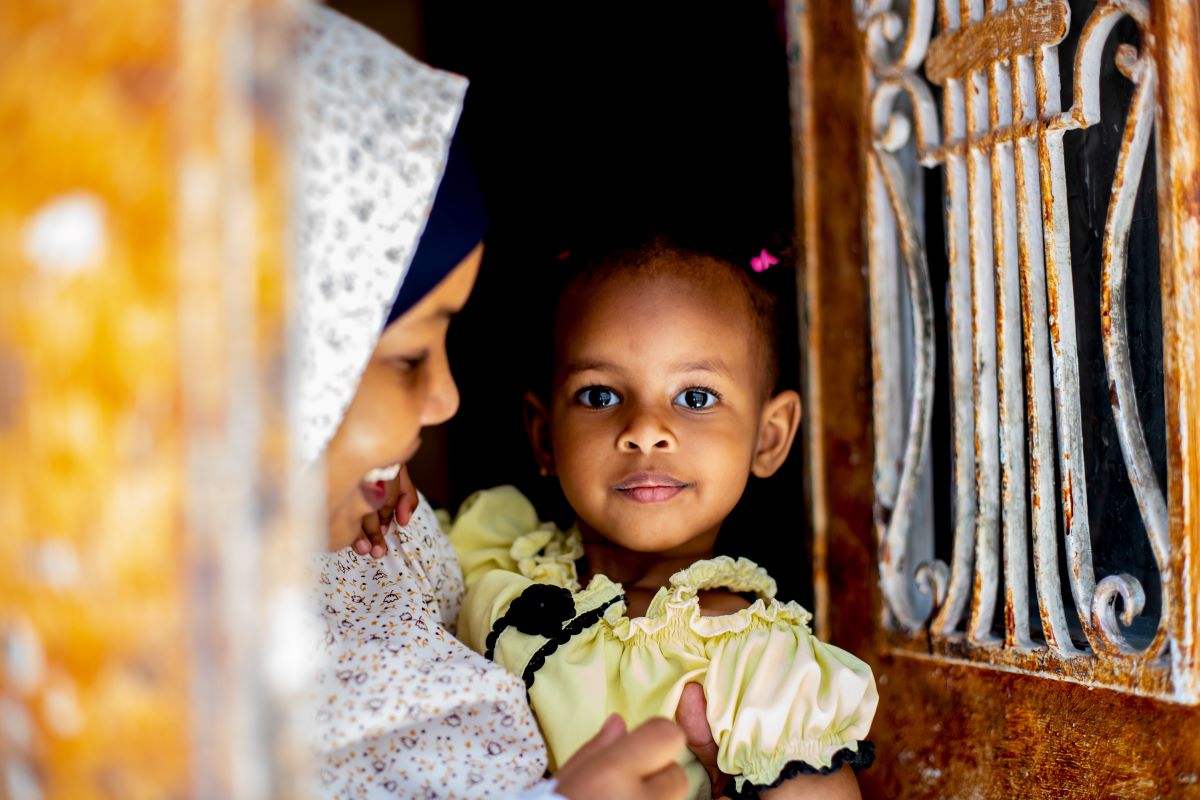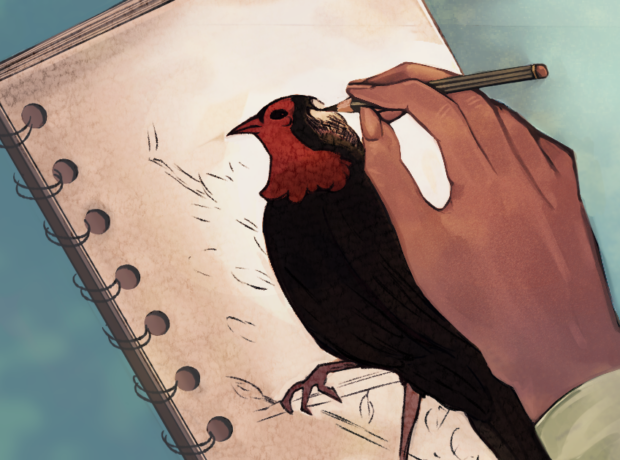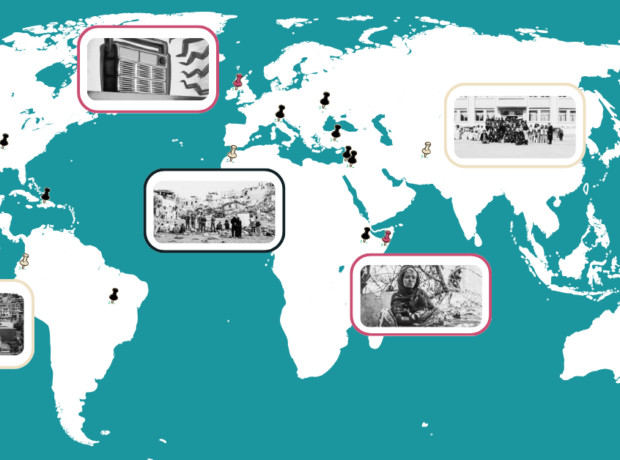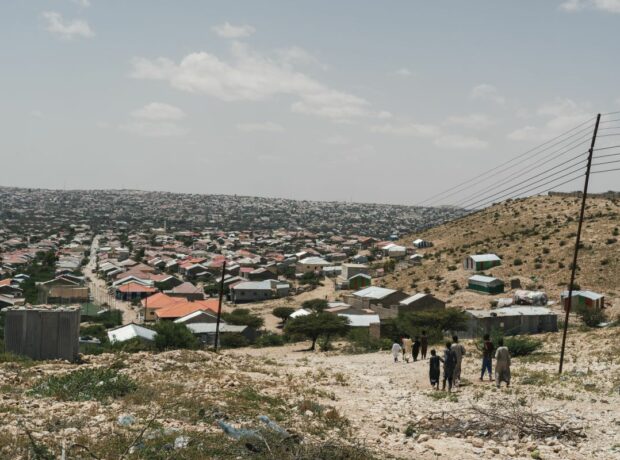The women in this series are refugees who have fled war and found themselves in Jordan, waiting for resettlement to Europe or North America. Coming from Yemen, Sudan and Somalia, each woman is forced to wait, without permission to work or study, to restart her life. Rayna Carruthers presents their images and stories.
Conflict has forced large numbers of people to flee Yemen, Somalia and Sudan as refugees, and many are now waiting in nearby Jordan, which hosts the second-largest number of refugees per capita worldwide, after Lebanon. Now stateless, they cannot claim asylum or obtain legal status, making them unable to work or access formal education or training. And they often struggle to access humanitarian aid. While they wait for resettlement, their lives must continue as they care for themselves and their children, and try to maintain hope and some sense of normality despite living in limbo.
Less than 1% of refugees are resettled each year through the UN as resettlement places are few compared to the global need. In 2024, UNHCR (the United Nations High Commissioner for Refugees) estimates that more than 2.4 million refugees worldwide require resettlement. Many countries are unable or unwilling to receive refugees at the rate needed to alleviate pressure for countries at the frontline of war and displacement. This means a situation of permanent backlog exists with thousands of lives put on hold. One of the women in this photo essay, Fatouma, has been waiting for more than 16 years.
During these long periods of pause, life must go on. The women explain how they continue to maintain family ties with relatives dispersed worldwide. They continue to prepare for their futures, sometimes creating informal businesses and learning new skills in preparation for the new lives they hope to one day have in Europe or North America. They continue to fight for their children’s uncertain futures.
Some of the women were initially apprehensive about having their photos taken. This came down to either cultural expectations that prevent some women from showing their faces publicly or a fear that speaking out about their situation may have negative repercussions. Some women chose to remain faceless and anonymous, while others wanted to speak out. One woman shared: “I want to show that I’m still here and to give people who may be in the same situation as me hope. They are not alone.”
One woman shared, “I want to show that I’m still here and to give people who may be in the same situation as me hope. They are not alone.”
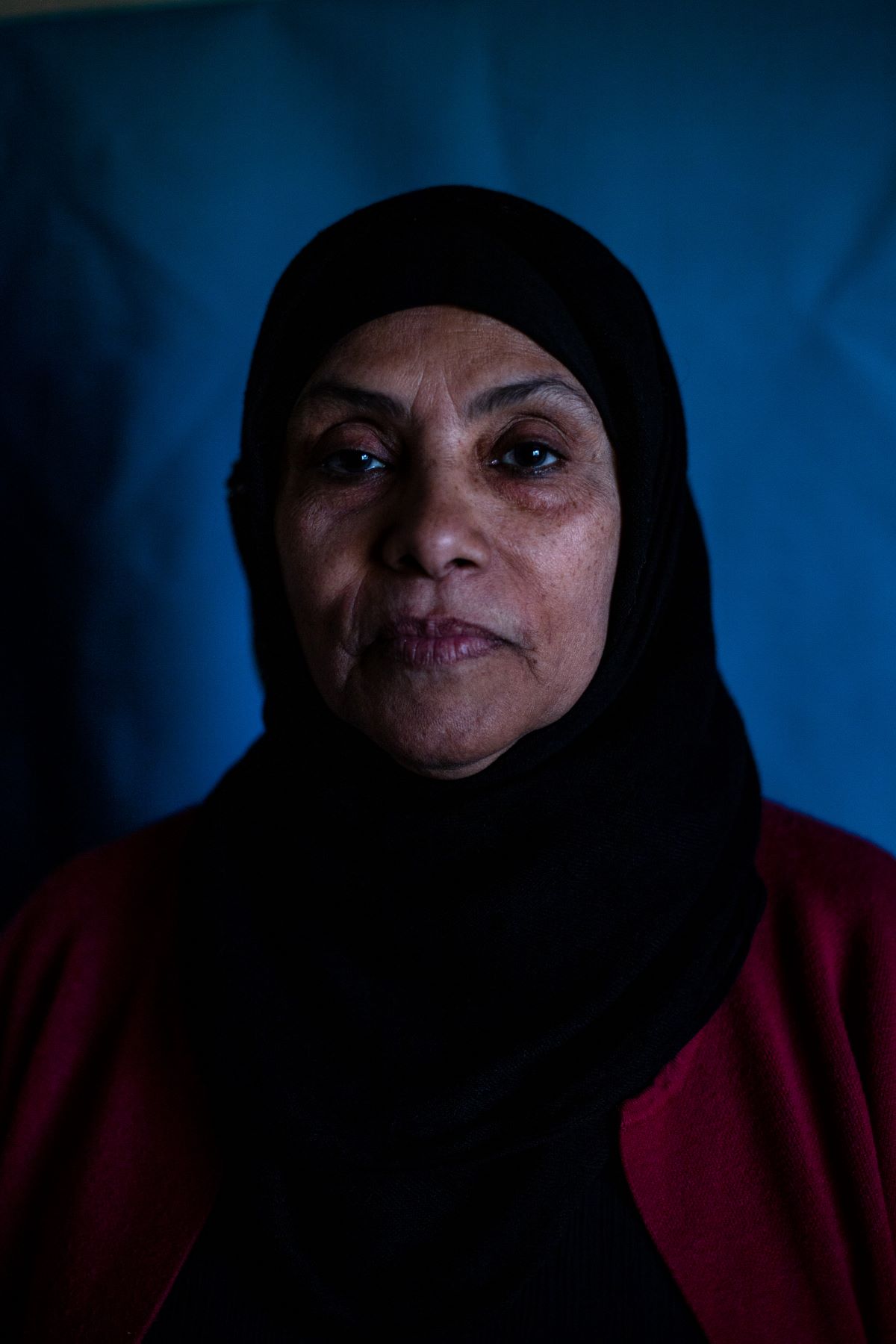
Fatma
Fatma is originally from Yemen. After war broke out in her home city, rebel forces began approaching her neighbourhood gathering up men to join them and fight. Fatma hid her son from them. When asked what made her decide to flee Yemen she said: “Young people were dying from war. Enough, I didn’t want that for my son.”
Fatma has been waiting for resettlement for more than seven years. She is afraid to return to Yemen as she thinks she is considered a traitor.
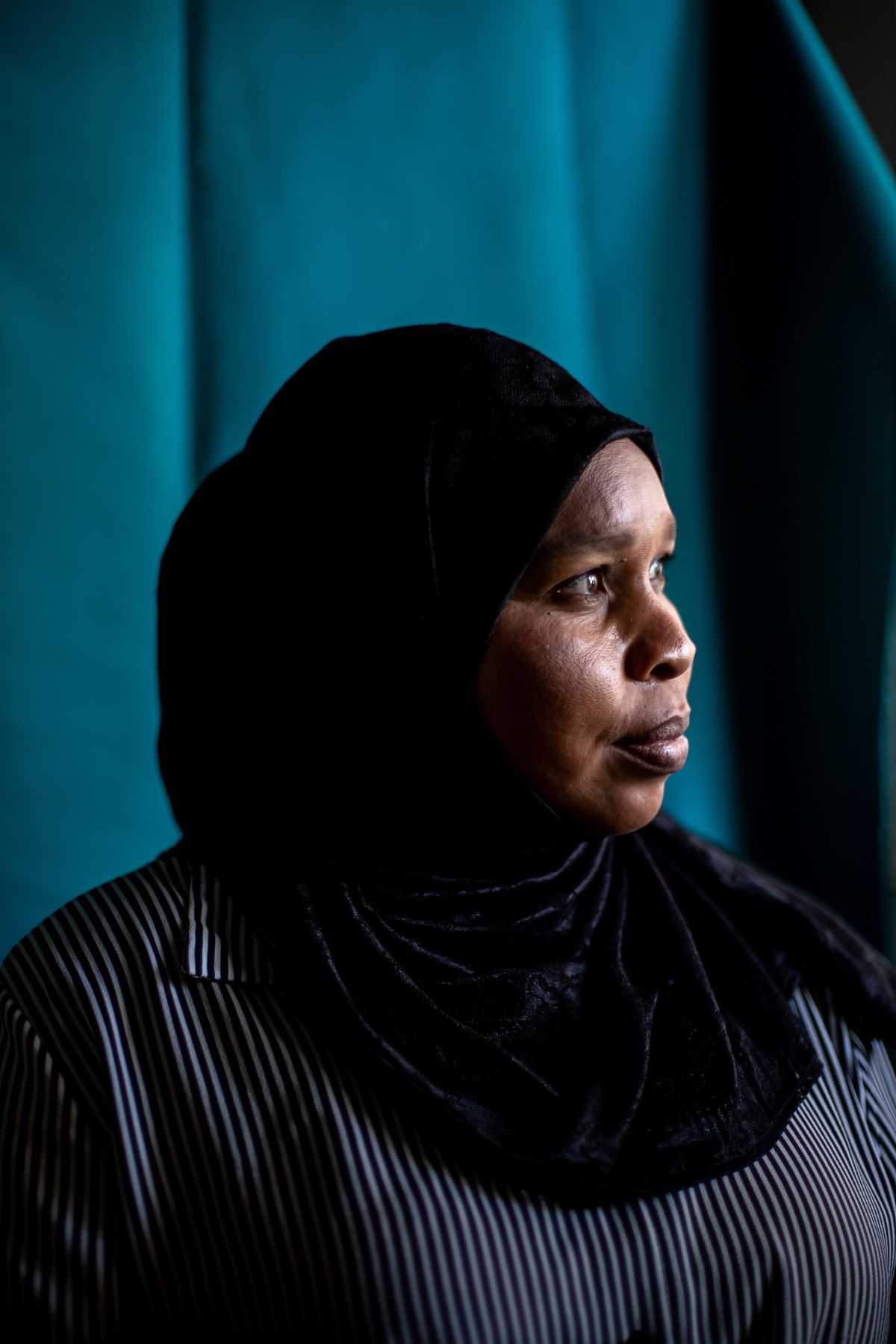
Jamilla
Jamilla and her mother are from Darfur in Sudan. They have been waiting for resettlement for more than 12 years. Jamilla lives with Multiple Sclerosis and when she first arrived in the Middle East, she had limited movement from the waist down. Since then, she has been treated by local NGOs and worked hard on her physical fitness, and now she has regained some movement in her body, allowing her to care for her mother. Because of this experience, she wants to go to university to study to become a doctor in whichever country she is resettled in.
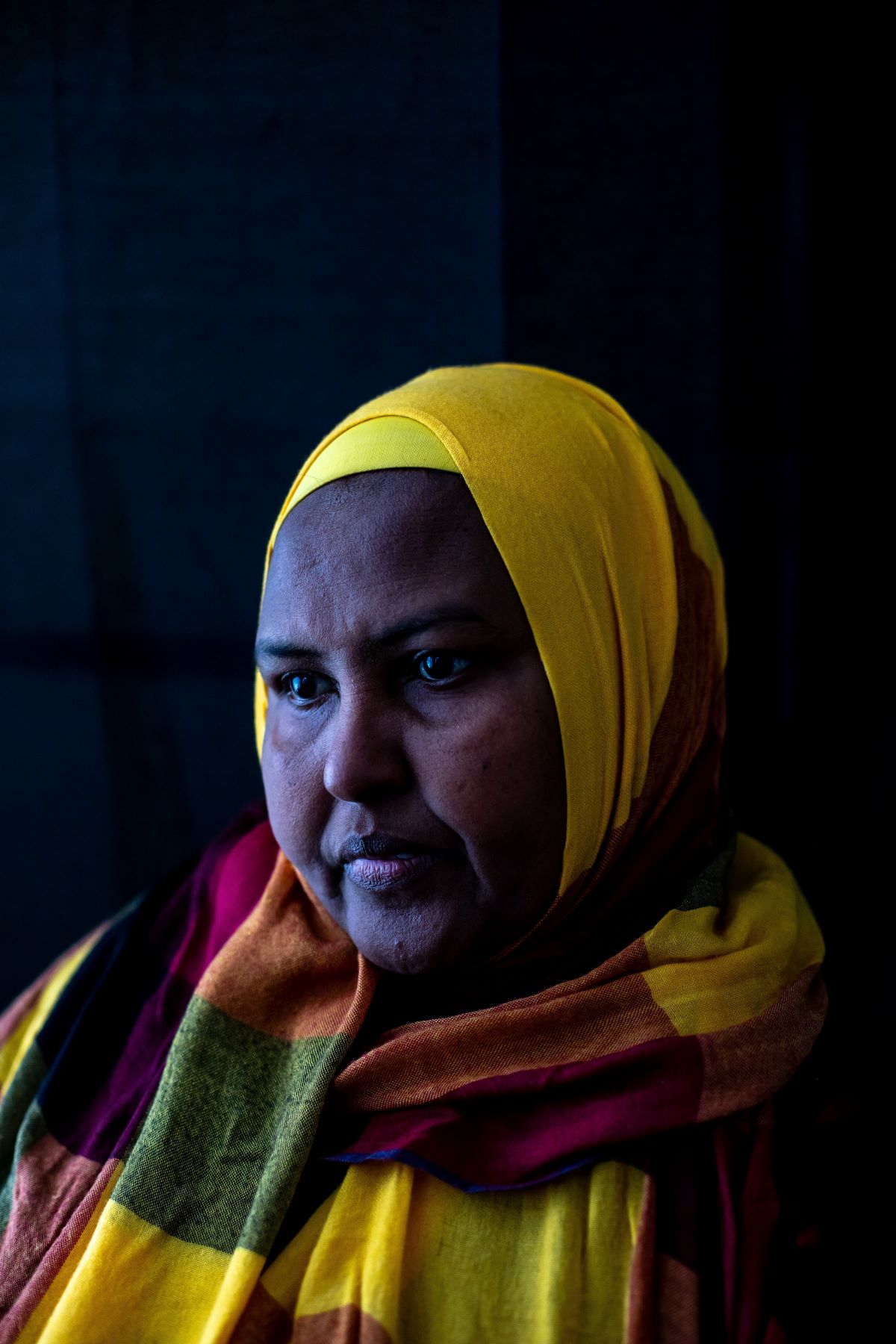
Fatouma
While she is not allowed to access paid work, Fatouma receives a monthly allowance from the UNHCR of 110 Jordanian dinars for her family to live on. These allowances are means tested and vary depending on the situation of each refugee, so single refugees may receive less. Fatouma’s small allowance is barely enough to pay rent so she supplements this by catering for families in her local neighbourhood. She dreams of owning her own restaurant one day.
“I want to be able to work like other people… but I can’t. When will I be able to travel to another country?” says Fatouma who has been waiting for resettlement for more than 16 years.
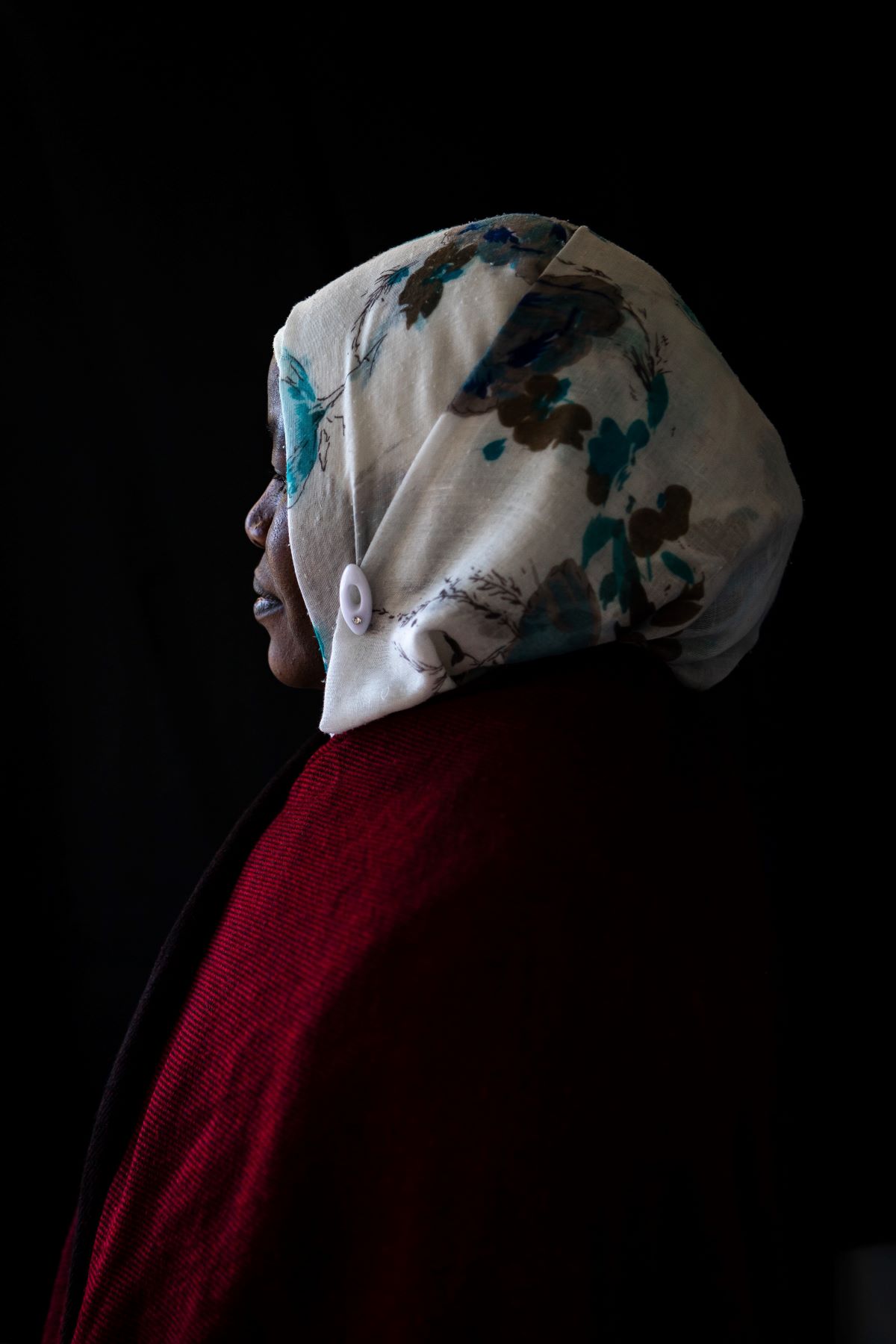
Mary
Mary (name changed to protect identity) is originally from Sudan but has been waiting for resettlement for more than 13 years. In that time, she has had three children.
Her children are able to go to a local school but their place there is precarious. And they are bullied by other schoolchildren because of their dark skin and hair texture. Mary feels unable to complain about the bullying in case it jeopardises their enrolment. Speaking about the racism she has experienced, Mary said, “I want to go to a country that will treat me and my children well – that will not discriminate against us because of the way we look or because we are refugees. But I have no country, so what can I do?”
Read more: Refugee Day: Journalism, fiction and photography telling refugee stories around the world
Early in 2023, fighting started again in Khartoum. The majority of Mary’s family fled to Egypt but her sister and father remained. She tries to speak with them on the phone as often as she can, but she struggles to reach them.
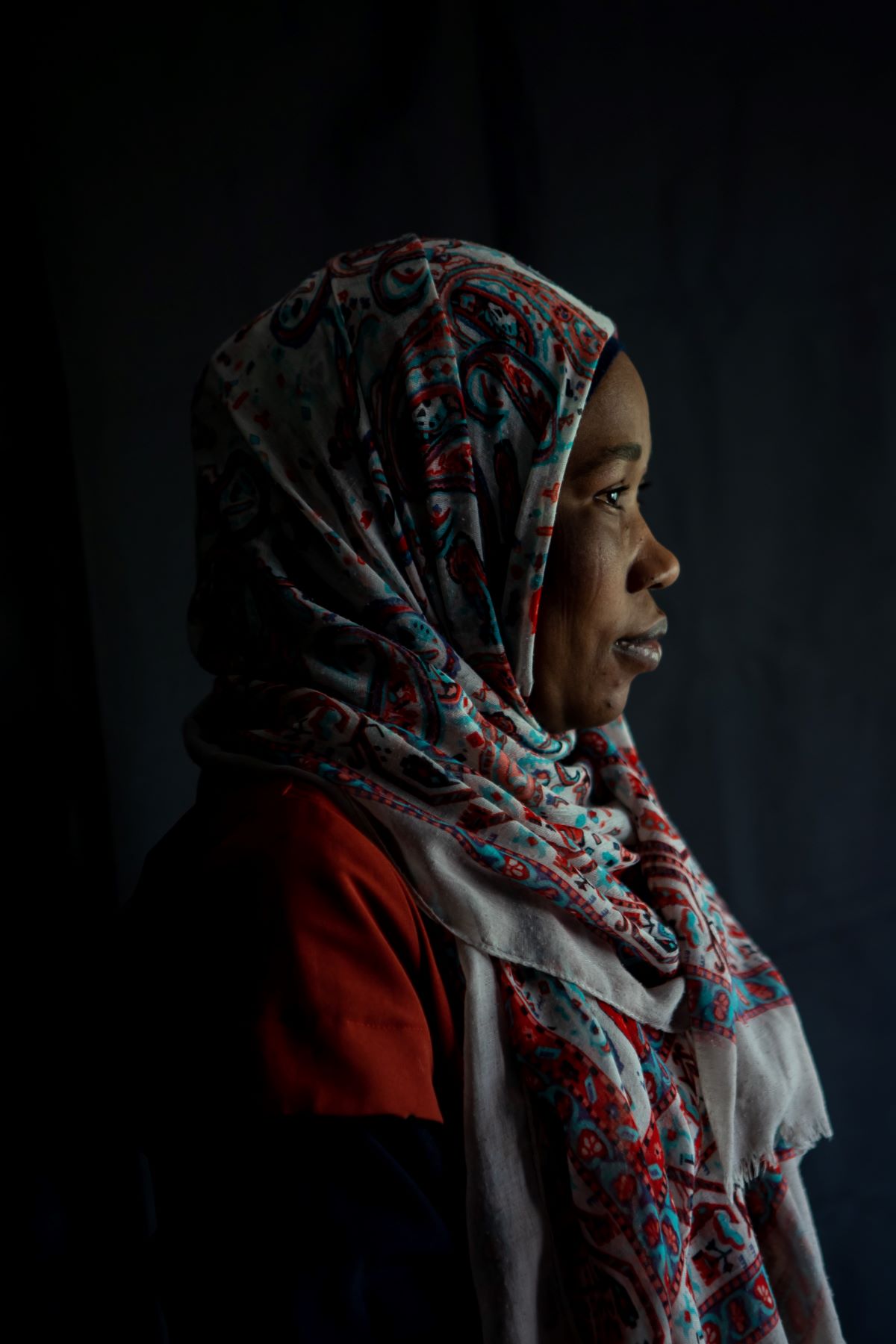
Raquella
Raquella is originally from Sudan and has been waiting for resettlement for more than 12 years. Raquella started university in Sudan and was hoping to become a doctor before war forced her to leave.
“I want the chance to study again before anything. And I don’t want to work for someone else. I don’t want to ask someone else for money. I want to provide for my family”
To supplement her allowance, Raquella does henna designs for tourists.
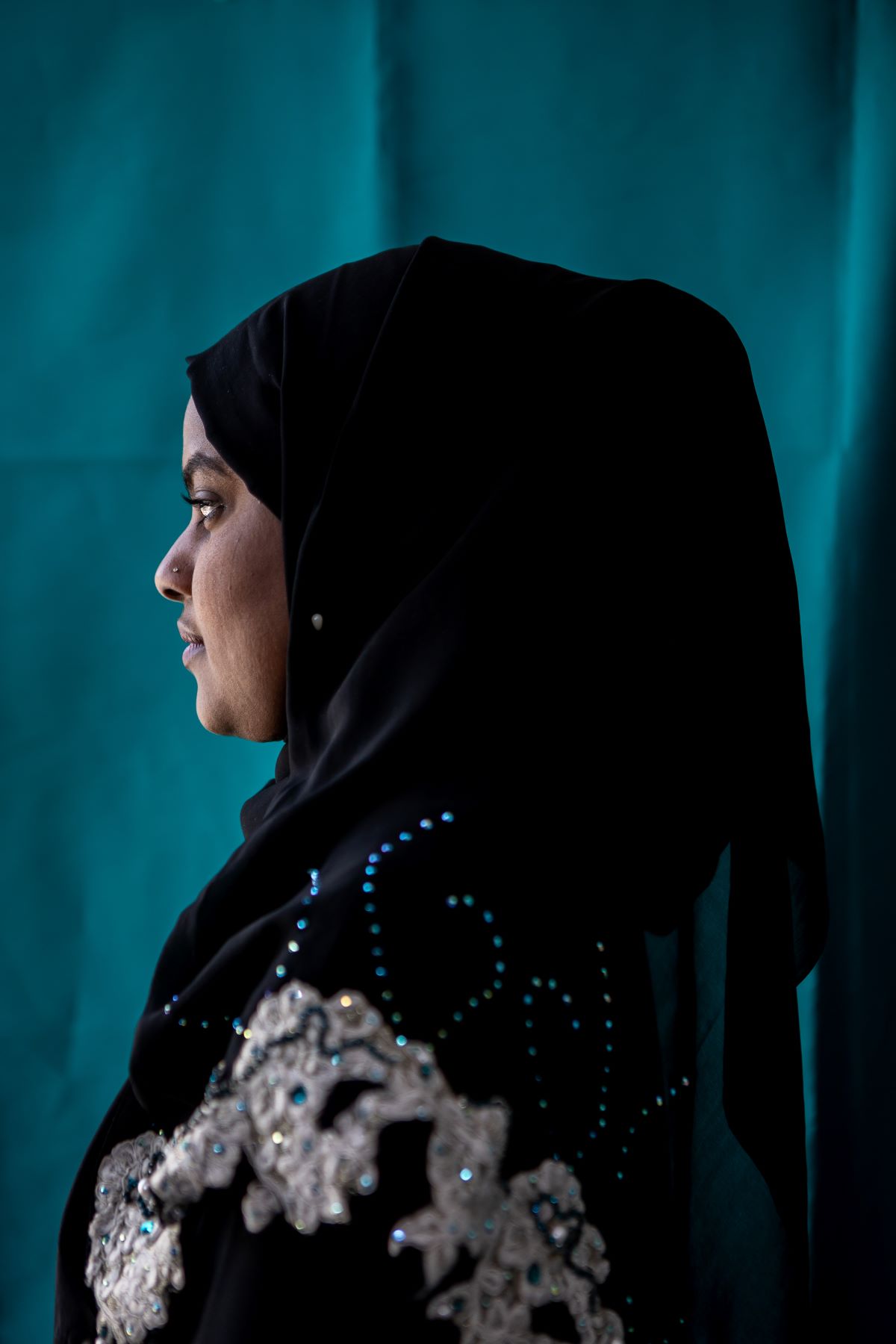
Munira
Munira is originally from Yemen. She first left Yemen in 2015 when she was in need of an eye operation. While she was in Jordan on a medical visa, her house in Yemen was destroyed by a bomb and her mother, who is Somalian, moved back to Somalia. As citizenship is passed down the patriarchal line, Munira is unable to settle in Somalia. And because she is estranged from her father, Munira believed she would be particularly vulnerable if she returned to Yemen without a male guardian. So, she registered with UNHCR to wait for resettlement.
Munira loves to sew. In the last year she has started a small informal sewing business, selling at local souqs to ensure she can afford the eye medication she needs.
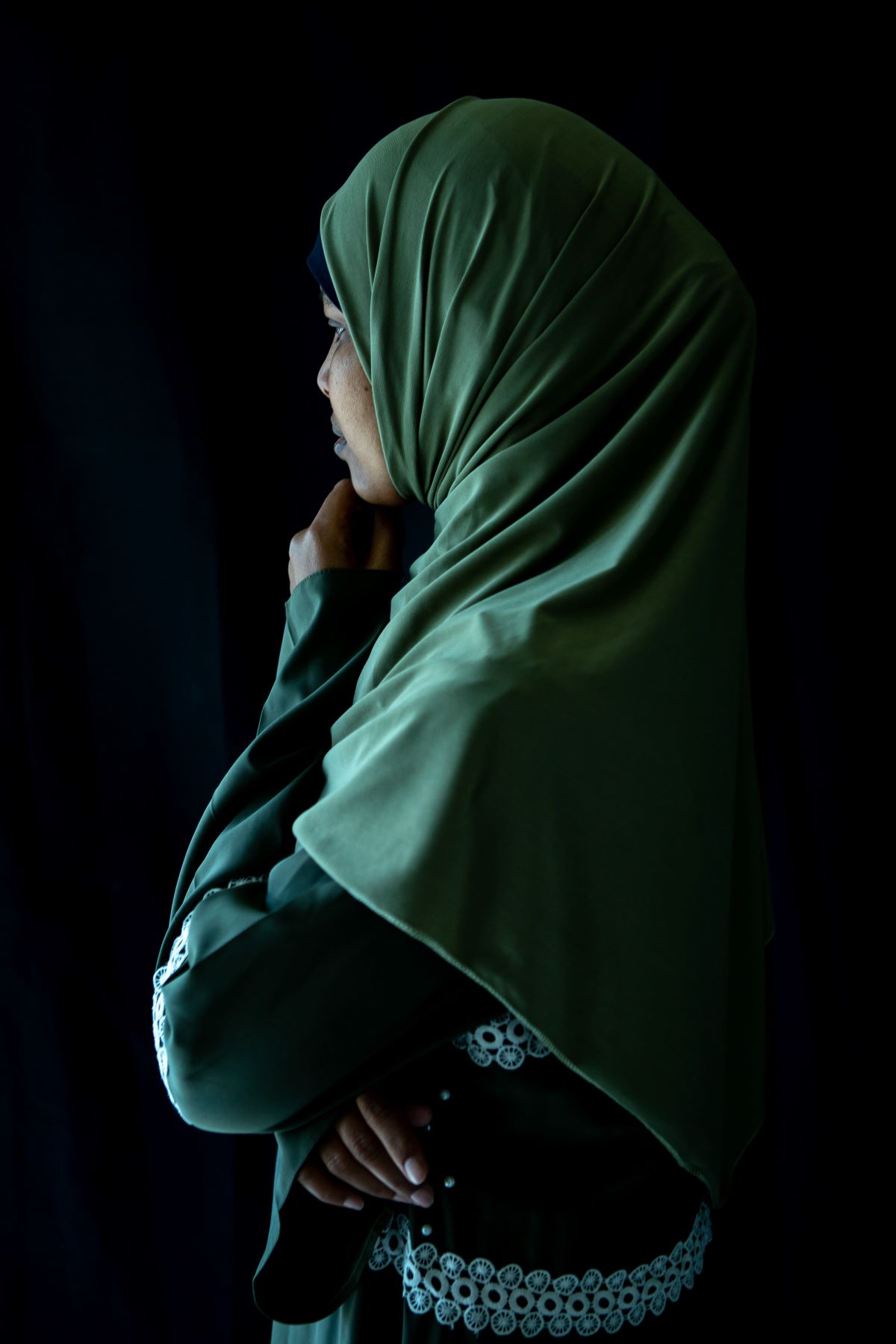
Julia
Julia (name changed to protect identity) is originally from Somalia and has been waiting for resettlement for more than eight years.
Julia first sought refuge in Yemen, but when war broke out there, she was forced to flee again.
While Julia was waiting for resettlement she had a daughter, Safiya (name changed). “After I had a daughter my worries and anxieties changed. I no longer worry about myself. Now I want to do everything I can for her and her future.”
All images by Rayna Carruthers.
Read more:
